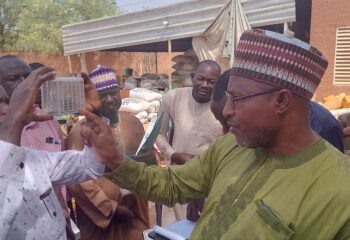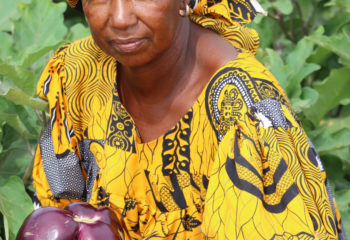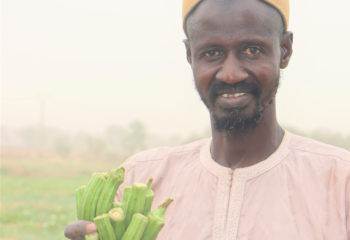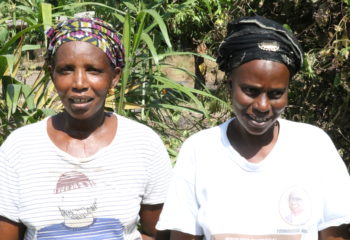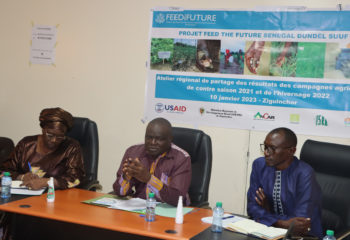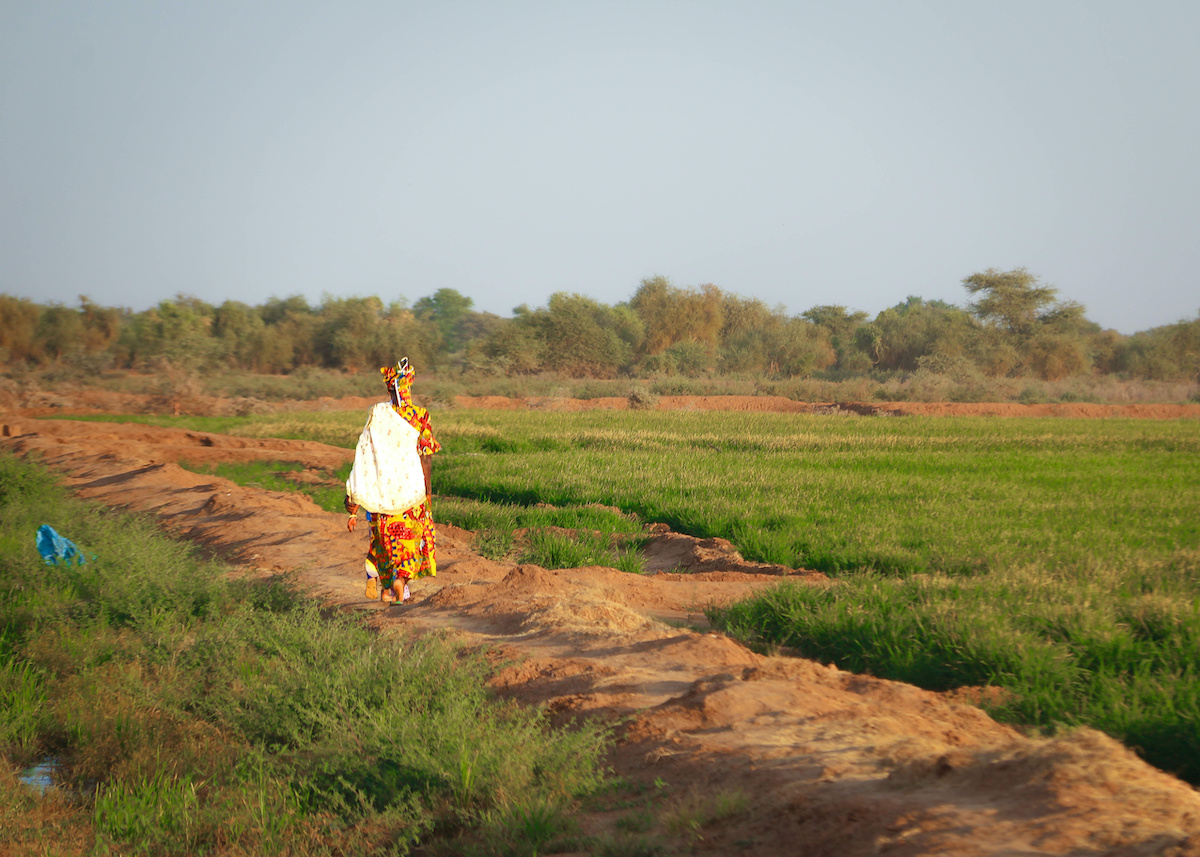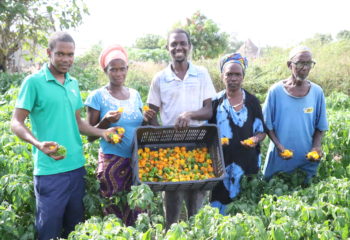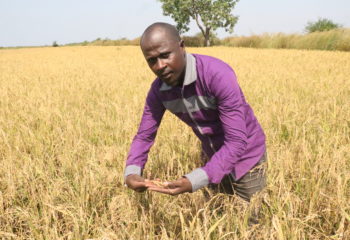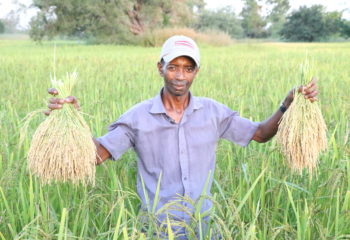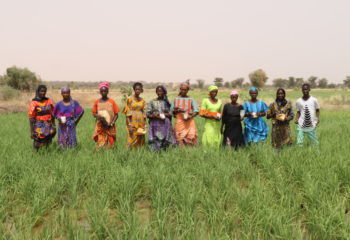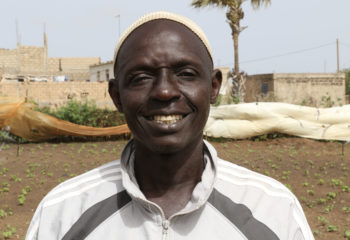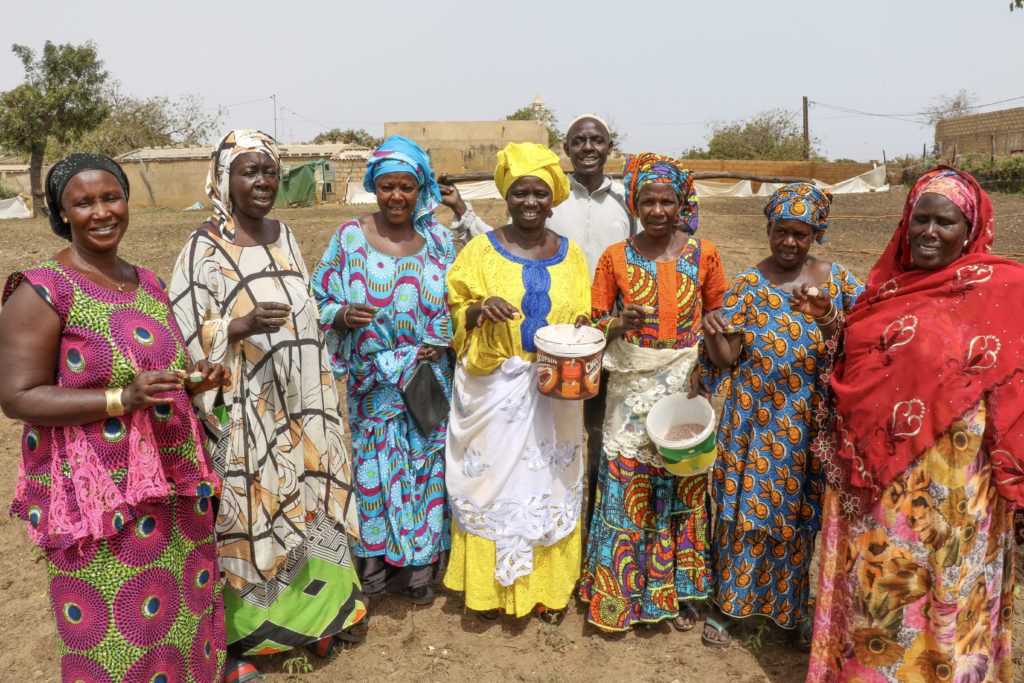
Feed the Future Senegal Dundël Suuf* (2019-2026) is part of the larger Feed the Future Enhancing Growth through Regional Agricultural Input Systems (EnGRAIS) Project for West Africa and the Global Food Security Strategy. The activity is promoting food security in Feed the Future zones of influence in Senegal with a focus on rice, maize, and millet.
Inappropriate fertilizer formulas, poor enforcement of quality control regulations, and low take-up of improved fertilizer products and technologies are key challenges facing Senegal’s agriculture sector. The United States Agency for International Development is partnering with the International Fertilizer Development Center, the Ministry of Agriculture and Rural Equipment, and other key national stakeholders in Senegal to address these issues by increasing agricultural productivity and production to reduce hunger, poverty, and malnutrition.
Dundël Suuf (“nourishing the soil” in the Wolof language) is supporting soil mapping to identify which fertilizer formulas work best for different crops in different areas, help farmers access fertilizers that will work best for them, and improve the fertilizer policy and regulatory environment.
Dundël Suuf aims to increase agricultural productivity to foster inclusive and sustained reduction in hunger, poverty, and malnutrition.
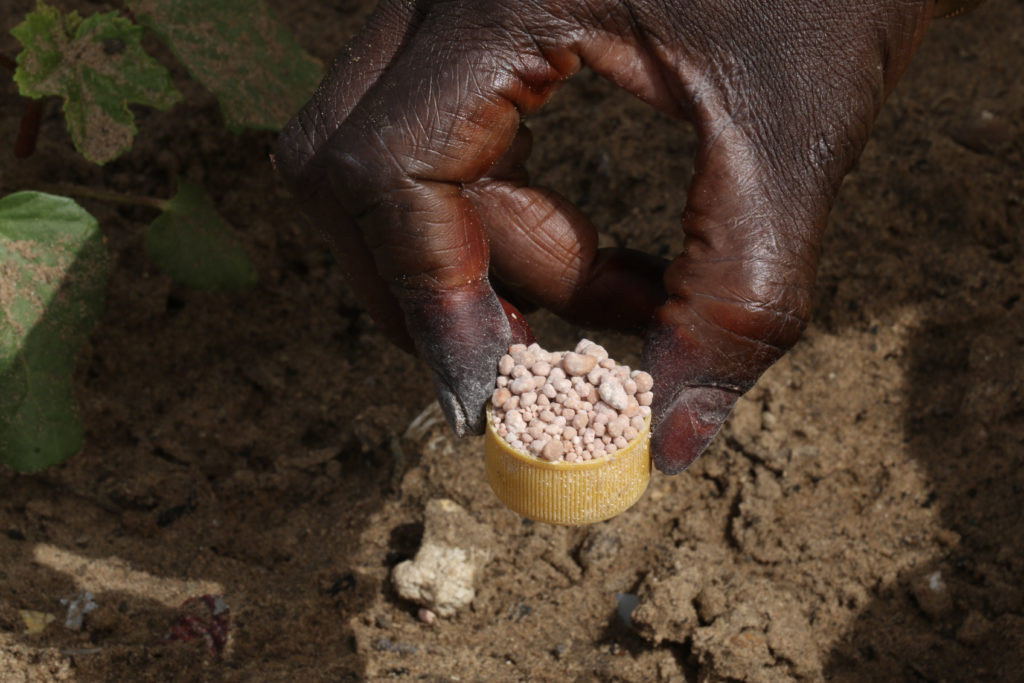
Intermediate Results
Achieving these aims and mission requires attainment of three Intermediate Results:
- Improved and appropriate fertilizer formulas developed and made available to farmers,
- Proven and environmentally sound fertilizer products and technologies disseminated and upscaled.
- Improved fertilizer policy and regulatory environment.
Project Activities
- Helping farmers access the right fertilizers for the crops they are growing in their area:
- Conducting soil sampling.
- Analyzing and mapping soil nutrient deficiencies.
- Developing recommendations.
- Developing balanced fertilizer formulas.
- Transferring technologies.
- Increasing the use of proven, environmentally friendly fertilizer products and technologies:
- Establishing a platform to share technology and innovation.
- Conducting an inventory of available fertilization products and other technologies for upscaling.
- Scaling up proven and available options.
- Increasing the role of the private sector:
- Analyzing and mapping key actors.
- Facilitating the supply of inputs/equipment for fertilizer-based technologies.
- Building stakeholder capacity.
- Developing a national fertilizer platform and a logistics platform to reduce transaction costs.
- Identifying, training, and backstopping private entrepreneurs.
- Improving the fertilizer sector policy and regulatory environment:
- Accelerating the review and adoption of draft fertilizer regulations.
- Facilitating the establishment of effective national institutional structures.
- Strengthening regulatory capacities.
- Conducting information and awareness campaigns.
- Reviewing implementation progress.
Integration of Cross-Cutting Issues
- Women’s access to productive resources.
- Increased youth engagement in agriculture.
- Effective governance of policies and institutions.
- More effective information sharing.
Target Beneficiaries
Dundël Suuf targets various beneficiaries who have the potential to accelerate expected impact. These include smallholder producers who are already connected to markets and are ready to engage in the new technologies for the targeted crops in the targeted agroecological zones (AEZs); actors in the input/fertilizer supply chain, including agro-dealers, fertilizer importers, blenders, distributors, and retailers; extension and research agents; and vulnerable groups, including women and youth. The project works in Feed the Future Zones of Influence and on crops that are of importance to producers in the various AEZs and contribute to achieving project objectives.
Intervention Zones
The recommendation of priority crops for five AEZs are summarized in the map and table below.
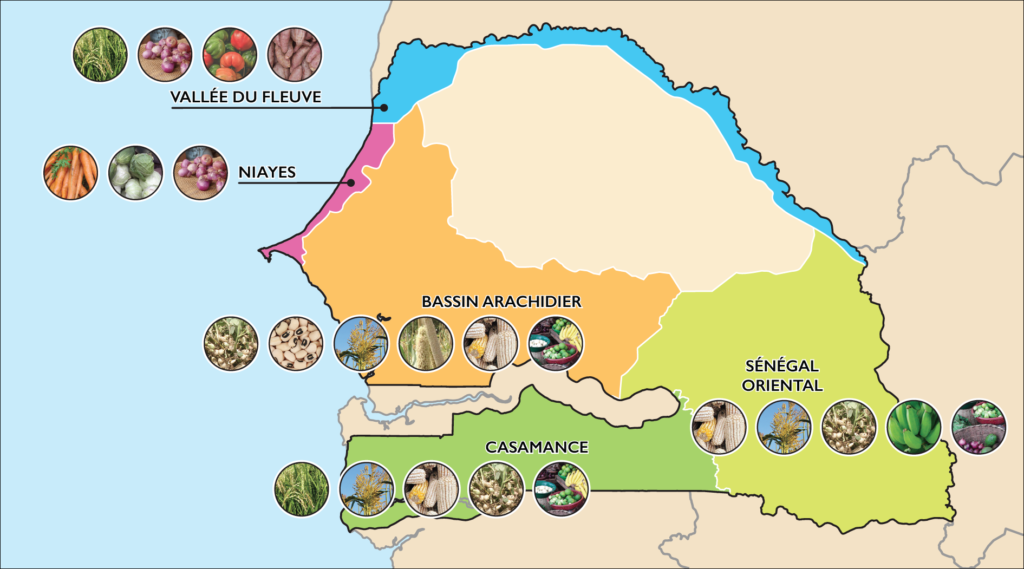
| AEZs | Priority Crops |
|---|---|
| Vallée du fleuve (Senegal River Valley) | Irrigated rice, onions, tomatoes, sweet potatoes |
| Niayes | Fruits and vegetables (carrot, cabbage, onion) |
| Bassin arachidier/Peanut Basin | Peanuts, cowpea, sorghum, millet, maize, fruits and vegetables |
| Casamance/Southern Forest Zone | Upland and irrigated rice, sorghum, maize, peanuts, fruits and vegetables |
| Senegal Oriental | Maize, sorghum, peanuts, fruits (banana) and vegetables |
* The Feed the Future Senegal Dundël Suuf project is the subject of a termination notice issued by the U.S. Department of State/USAID on February 26, 2025.
Project Documents
DS FlashInfo
January 2021
February 2021
March 2021
May 2024 (EN)
Annual Reports
Annual Report 2020 (EN)
Annual Report 2021 (EN)
Annual Report 2022 (EN)
Other Reports
Effets de la covid-19 sur le secteur des engrais au Senegal
Cartographie et caracterisation des fournisseurs d’engrais au Senegal (Decembre 2020)
Manuel d’inspection des engrais au Senegal
Paroles aux acteurs
Etude de réference
Etude de marche de l’uree super granulee (USG) au Senegal
Au coeur des acteurs
Key Achievements for 2022 (EN)
Success Stories
Results
2023
- Disseminated urea deep placement (UDP) and microdosing (MD) technologies.
- Trained 173,900 participants (54% women and 17% youth) on the application of UDP and MD technologies, 148,680 of whom applied the technologies on 20,509 ha of land.
- Tested 16 new NPK fertilizer formulas on rice, millet, and groundnut in collaboration with ISRA.
- Developed 12 new formulas for testing on vegetable crops and maize.
- Facilitated nine regional policy dialogue platform meetings to enable stakeholders to discuss issues related to fertilizer access, including subsidy program reform.
- Organized six regional workshops to share the results of project activities.
- Welcomed 13 undergraduate students for internships.
2022
- Applied urea deep placement (UDP) and microdosing (MD) technologies on 8,990 ha.
- Reached 88,091 people, 32,975 of whom received agricultural input packages (AIPs) to help boost yields.
- Trained 32,996 participants (57% women and 19% youth) on the application of UDP and MD.
- ISRA developed and tested 16 new NPK fertilizer formulas on 194 plots in research stations and farm settings.
- Facilitated 19 meetings between regional platforms and the private sector to discuss the conditions regarding access to fertilizer.
- Organized 11 regional workshops to share the results of project activities.
- Welcomed 16 undergraduate students for internships, as part of the partnership with the Université du Sine-Saloum El-Hâdj Ibrahima Niasse (USSEIN) initiated in 2021.
2021
- Selected 17 partners to establish 3,053 fertilizer deep placement (FDP) and microdosing (MD) demonstration plots on 8,092 hectares for 87,682 beneficiaries, 900 of whom received agro-input packages for COVID-19 impact mitigation.
- Trained 122,644 participants (55% women and 15% youth) on FDP and MD application standards.
- Produced 8,000 flyers on smart fertilizer subsidy program guidelines and shared with partners, particularly decision-makers, to contribute to subsidy reform.
- Analyzed 2,556 soil samples for generating 15 soil fertility maps for Senegal.
2020
- Thirteen partners have been selected to carry out 624 fertilizer deep placement (FDP) and microdosing (MD) demonstration plots on 1,037 hectares for 4,626 beneficiaries, 50% of whom are women.
- A total of 9,332 participants are being trained on FDP and MD application, monitoring and evaluation, and budget management.
- Four preliminary texts and an inspection manual have been drafted and validated to facilitate the adoption of the ECOWAS fertilizer regulation.
- To contribute to subsidy reform, 2,150 flyers on the smart fertilizer subsidy program were shared.
2019
- Dundël Suuf documented soil fertility mapping initiatives in Senegal to identify potential complementarities and synergies for the project’s soil fertility mapping activity.
- The project signed a service delivery contract with the Senegalese Institute for Agricultural Research (ISRA) for effective implementation of the project’s IR1 component.
- Dundël Suuf conducted a study on the characterization of the fertilizer sector in Senegal and identified six organic fertilization technologies and two chemical fertilization technologies as ready for diffusion.
- Draft complementary texts for the implementation of the Economic Community of West African States’ fertilizer quality control were revised and will be validated by stakeholders under the leadership of the Ministry of Agriculture and Rural Equipment.
- Dundël Suuf reviewed the performance of the current national subsidy program and identified key factors needed for private sector involvement in the reform process.
Senegal Soil Maps


